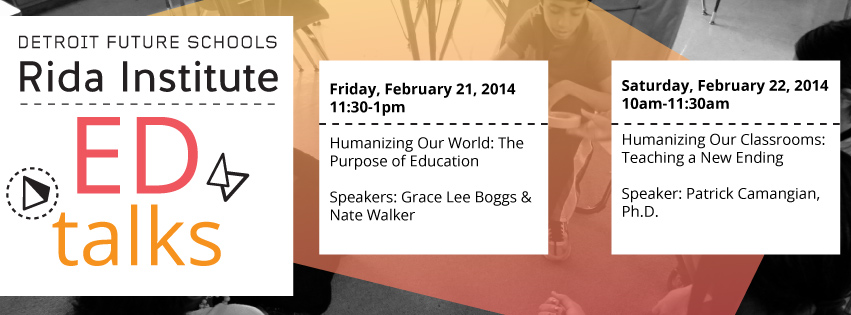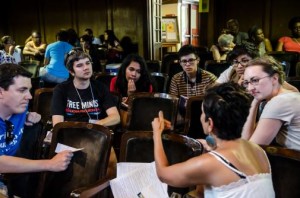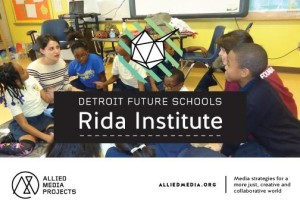Detroit Future Schools invites all educators, youth, parents and community members to join us for two important conversations about the purpose of education and the practice of transforming classrooms for a more just, creative, and collaborative world. These panels will be taking place in conjunction with the Detroit Future Schools Rida Institute.
Both events are free and open to the public and will be held at Allied Media Projects, 4126 Third St., Detroit, MI 48201. RSVP on Facebook.
HUMANIZING OUR WORLD: THE PURPOSE OF EDUCATION
Friday, February 21, 11:30 a.m. – 1:00 p.m.
Speakers: Grace Lee Boggs & Nate Walker
How can we practice transformative education in our classrooms if we don't fully understand the systems we are working to transform and how they came to be? In this panel, Detroit activist-philosopher and education theorist, Grace Lee Boggs will provide a long-view of the evolution of schooling in this country and articulate the need for a humanizing education system that will restore human relationships to each other, our communities, and to the planet. Nate Walker, an organizer for the American Federation of Teachers in Detroit, will describe the features of local educational ecosystems today that can either impede or facilitate this kind of humanizing education.
HUMANIZING OUR CLASSROOMS: TEACHING A NEW ENDING
Saturday, February 22, 2014, 10:00 a.m. – 11:30 a.m.
Speaker: Patrick Camangian, Ph.D.
Authentic transformation in the classroom requires "an ability to read the world," as Paulo Freire says, that empowers students to transform their actual lives. Patrick Camangian is an assistant professor in the Department of Teacher Education at the University of San Francisco and has been an English teacher since 1999, continuing in the tradition of teacher-research, applying socially transformative teaching in urban schools. He will share lessons from his extensive work as an educator and researcher in urban schools throughout California, cultivating this ability in young people to read and shape their worlds. He will share the practices teachers can use to treat young people’s most pressing concerns as worthy of intellectual interrogation, and the jumping-off point for all learning.
★ ★ ★ ★ ★ ★ ★ ★ ★
Keep us going and growing: Sign-up to become a DFS sustainer!
Like Detroit Future Schools on Facebook.



 by Isaac Miller
by Isaac Miller Are you a K-12 classroom teacher with visions of fostering transformative education in your classroom, but drowning in the day-to-day of federal policies, school bureaucracy and individual student needs?
Are you a K-12 classroom teacher with visions of fostering transformative education in your classroom, but drowning in the day-to-day of federal policies, school bureaucracy and individual student needs?